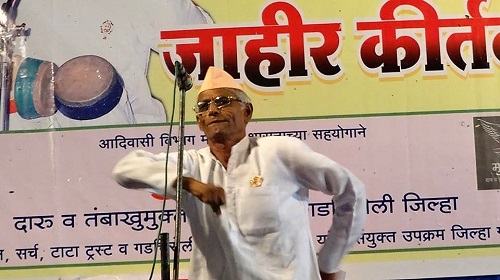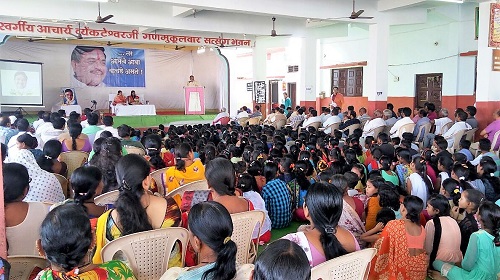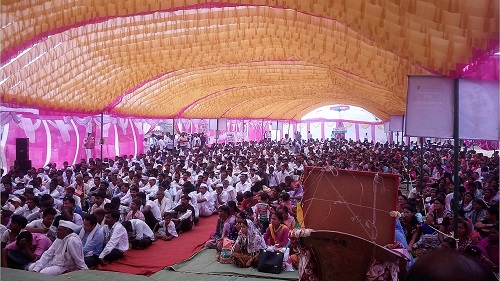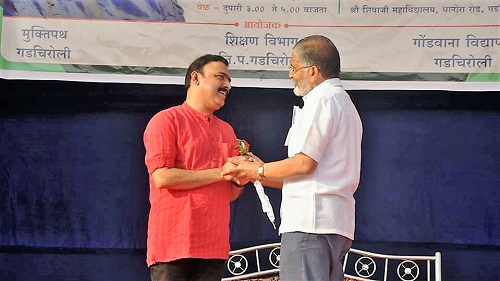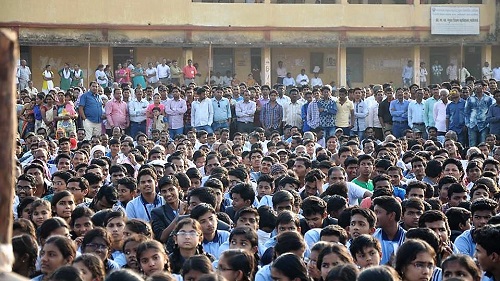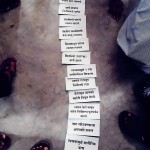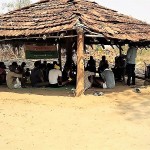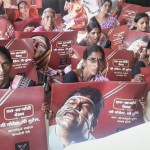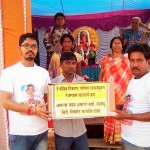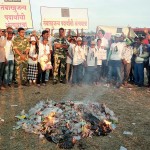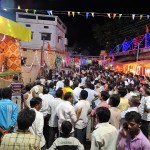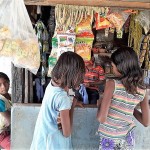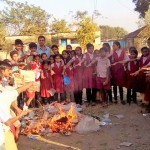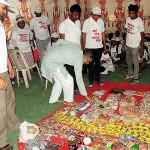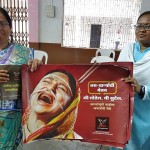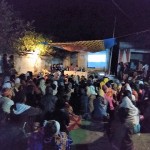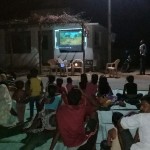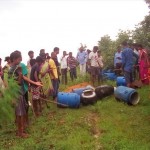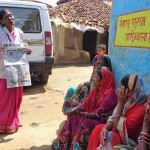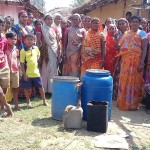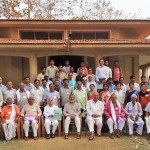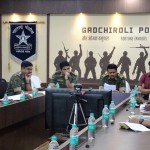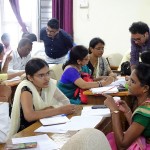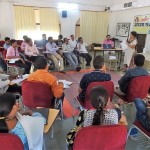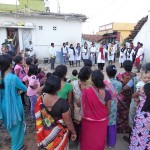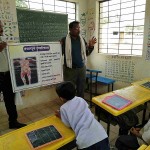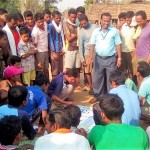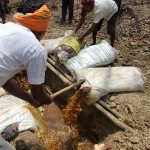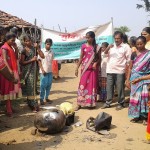The Problem
The Government of Maharashtra has banned some oral tobacco products including Gutkha and scented tobacco in the state, while alcohol is banned in Gadchiroli district since 1993. In spite of the ban, people in the district consume alcohol and tobacco on a large scale. Recent studies by SEARCH show 50% of the population consumes tobacco (mostly smokeless) and 41% of the males consume alcohol. The total annual out-of-pocket expenditure on these two substances in this poor district (1.2 million populations) is Rs. 3.5 billion.
From August 2016, a district-wide tobacco and alcohol control program, called ‘Muktipath’ is being implemented across Gadchiroli district, Maharashtra. ‘Muktipath’ a joint initiative of SEARCH, Tata Trusts, the Government of Maharashtra and the people of Gadchiroli, is a multi-pronged programme, aimed at improving awareness about tobacco, alcohol and their ill effects, creating a social environment that would eventually reduce the consumption of these, and rehabilitating addicts. Enforcing the ban through government action, mobilizing the community through village level committees, and research to generate evidence for replication and advocacy are key components of the intervention. The campaign rests strongly on participation from the government and from the community.
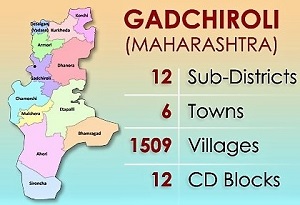
Goal & Objectives of Muktipath
The goal of Muktipath is to create awareness and environment against alcohol & tobacco through ‘Alcohol & Tobacco Free Gadchiroli District Program’
Objectives:
-
- To reduce the alcohol and tobacco sale points by the year
- Prevalence and frequency of the use of alcohol & tobacco will be reduced by 50%
- To reduce the expenditure on these substances by 30% thereby saving Rs.100 Crores every year
- To improve health, women safety and road safety
- To establish a permanent administrative and public support system for this cause
Strategy
The strategy of Muktipath has been designed based on the recommendations of the World Health Organization (WHO) and various other healthcare experts. The strategy of Muktipath aims to address both the demand & supply sides of alcohol & tobacco use. The strategy focuses on mass awareness & de-addiction to reduce the demand for alcohol & tobacco, and on community action & ban enforcement to reduce the supply, the aim of the program is to have a holistic approach to reduce alcohol & tobacco use.
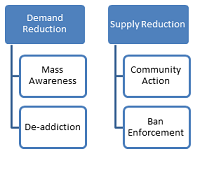
Based on the approach mentioned above the key strategic initiatives for Muktipath are as follows:
- Reduce the availability of alcohol & tobacco by rigorous implementation of the law, and punishing the guilty.
- Public awareness and campaign to reduce the social acceptance of alcohol & tobacco.
- Active people’s participation at all levels, a public watch-dog action.
- De-addiction and medical treatment to the patients for the ill-effects of alcohol and tobacco.
- Increase the number of social units which are free from alcohol and tobacco (person, family, village, ward, school, college, institution, office).
- Create political, administrative will and priority.
- Establish a system for effective direction and coordination.
Programs and Activities
1. Mass Awareness
Regular village visits and village awareness activities are conducted by Block Team members to spread the awareness of the cause. Conducting village awareness is one of the crucial activities of Muktipath program. After an initial visit to the villages, Block Team conduct these programs in the villages to give them information about the ill effects of alcohol & tobacco through various communication methods, they motivate villagers to come together against this problem. Festivals and social gatherings are tapped by Muktipath to spread awareness. Such major awareness gatherings include Markanda Yatra, Ganeshotsav, Pola, Independence Day etc. these festivals helped Muktipath to reach to the huge population. Apart from the regular festivals, some awareness activities like ‘Muktidin’ in the presence of Marathi actor Makrand Anaspure, Satypal Maharaj’s Kirtan, Speeches by Late R. R. Patil’s daughter and wife on Tobacco addiction were organized to inject the message amongst the people.
2. Community Mobilization
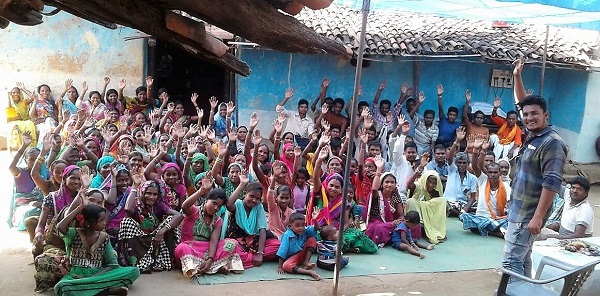
Every Gram Panchayat have a samitee to monitor the work of gaon sangathans under their panchayats. Muktipath Block Teams form these Samitees. Block team is continuously facilitating formation of Gaon Sangathan in every village to implement ban on illicit alcohol and to control tobacco selling in villages.
2.1 Community Action
Mass awareness is the first step towards community action; awareness leads to the community getting mobilized for a cause which later leads to community action. The Muktipath taluka teams begin with mass awareness programs in villages and try to build a consensus among the villagers to proactively tackle the alcohol and tobacco issue. Muktipath block teams guide and train Gaon Sanghtanas. Community action has been an integral part of the program. It is through community action that the problem of alcohol & tobacco can be addressed in the long run.
2.2 Stakeholder Meets and Trainings
Meetings with the stakeholders like NGOs, Media groups & newspapers, Social influencer groups, Religious & cultural groups are regularly conducted to coordinate and align the movement against alcohol & tobacco. In order to create alcohol – tobacco free social units, we provide trainings to Gaon Snghatans, Teachers, ANM, AASHAs etc.
3. Ban Enforcement
Community action, being an important part of the program, needs complementary law enforcement efforts for the overall impact to be significant. Although the laws criminalizing sale of alcohol & certain tobacco products have existed for a while, the enforcement of these laws related to both alcohol and tobacco has been found lacking at times. Moreover, the awareness of these laws among the local population, consumers, and traders is not widespread. Many people, consumers & traders included, are not aware of the laws surrounding the trade of alcohol & tobacco. Muktipath has also undertaken efforts for sensitizing law enforcement & other government agencies like Police department, Food and Drugs Administration towards the issue of alcohol & tobacco. Muktipath team meets with various government stakeholders regularly to coordinate and align the efforts of the program with the institutions. The action plans developed for the institutions gives them a framework to execute the alcohol & tobacco control program in their respective institutions, and focuses on streamlining their training, operations & monitoring processes.
4. De-Addiction
There is a large chunk of addicts in the district. Providing treatment to the addicts is one of the needs to decrease the demand of alcohol. Alcohol De-addiction camps are held in SEARCH, Shodhgram as well as in the villages. Also, Muktipath and Police department initiated a De-addiction center called ‘Sankalp’ to decrease the alcohol and tobacco addictions amongst the Police Officials.
Muktipath Organization Structure
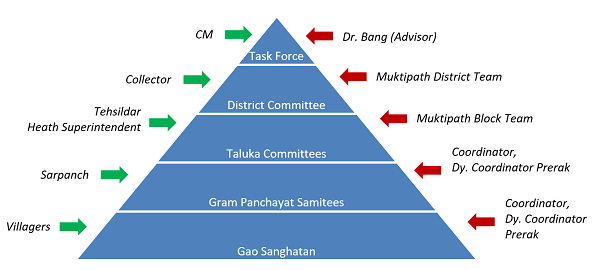
Partners
Muktipath is a joint initiative by SEARCH, Government of Maharashtra and TATA Trusts. Govt. of Maharashtra provides administrative support whereas TATA Trusts provides knowledge and program support to that program. In addition, both Govt. of Maharashtra & TATA Trusts funds Muktipath.
Muktipath Team
The Muktipath district team works in independently on designing, planning & coordinating the various activities, events & programs under Muktipath. The district team is supported by the taluka teams of Muktipath consisting of Coordinator, Dy. Coordinator & Prerak, with the number of people based on the size of the respective Taluka. These Taluka teams are responsible for on-ground implementation of Muktipath’s plan and activities. The Muktipath district office comprises six employees – Director, Dy. Director, Data Management Officer, Communication Officer, Accountant & Driver. The Muktipath taluka teams consist of a team of 2-4 people per taluka depending on the size of the respective Taluka, with some larger talukas having 4 members while the smaller ones having only 2. The taluka team consists of a coordinator, a deputy coordinator and a prerak, with the coordinator shouldering all administrative responsibilities. As of now, there are 32 people working in the Muktipath taluka teams.

Dr Mayur Gupta
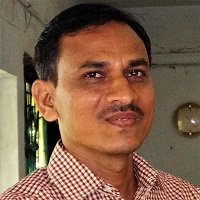
Santosh Savalkar

Ganesh Kolgire
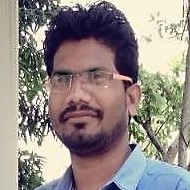
Rakesh Dhawale
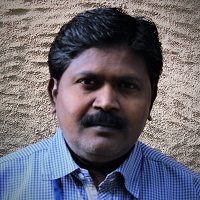
Keshav Chavan
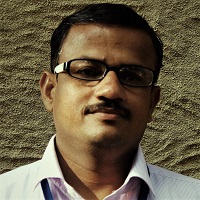
Kishor Mallewar
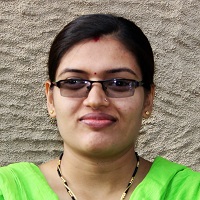
Nilam Harinkhede
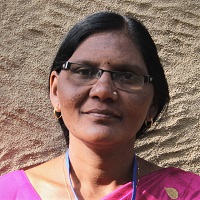
Nila Kinnake
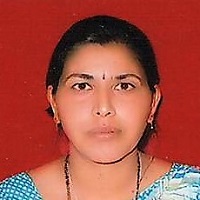
Bharati Upadye

Sunita Bhagat
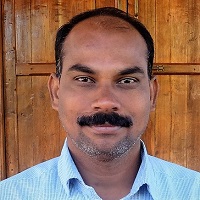
Rupesh Ambade
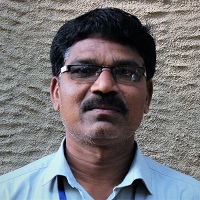
Bhaskar Kadyami
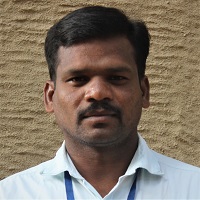
Revnath Meshram
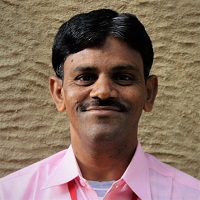
Vinayak Kunghadkar
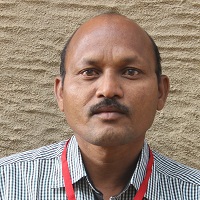
Anandrao Sidam
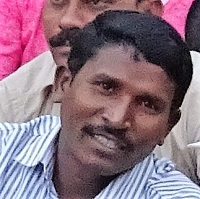
Chinnu Mahaka
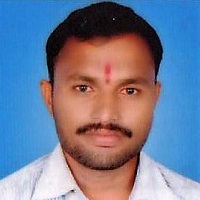
Santosh Chandawar

Akshay Peddiwar
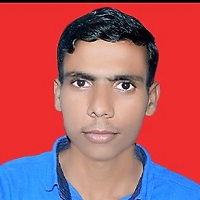
Prakash Kunghadkar



